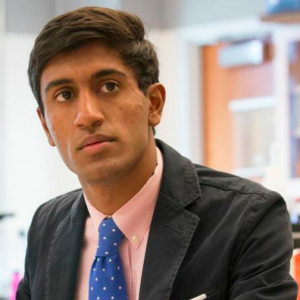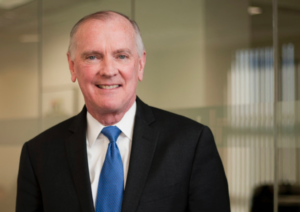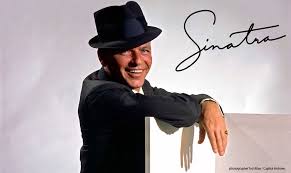Startup Snapshot: Upsolve
Compiled by Monica Bay
Meet Rohan Pavuluri, 20, the co-founder of Upsolve (along with Jonathan Petts). Upsolve launched in February.

Social Studies
Website upsolve.org
Twitter
Facebook
Education : Pavuluri, 20, is pursuing his B.A. in Statistics at Harvard.
Past significant jobs: City of Chicago Department of Innovation and Technology (2016) and the Albright Stonebridge Group (2015)
What problem does your startup solve? We’ve built the equivalent of “TurboTax” for Chapter 7 bankruptcy. Using a guided, easy to understand online survey, users answer questions about what they own, earn and spend. We take their answers and automatically generate the paperwork they need to file for bankruptcy. After completing our survey, all our users need to do is print out the paperwork they receive and deliver it to the clerk’s office at the court.
Bankruptcy is one of the most transformative forms of legal relief. Yet few Americans file because they can’t afford a $1,300 lawyer. Legal aid clinics don’t have enough free lawyers and the forms are impossible to complete without help. We hope that our product can make bankruptcy accessible for low-income Americans who cannot afford lawyers.
What does it cost? It’s free. We are a non-profit, operating in New York City.
Do you have any patents? No.
What inspired you to pursue this startup? The Harvard Law School research team behind The Financial Distress Research Project. In 2012, the research team realized that most self-help legal materials weren’t very good. So the HLS team started designing materials and using randomized control trials to evaluate them. Our software uses the principles that the HLS team devised in developing its legal self-help.

Do you have funding yet? We have received grants from Yale Law School, Harvard University, and the Robin Hood Foundation.
Biggest challenge re: the startup: Distilling legal terms like unsecured nonpriority debt—in plain language to our users. It’s a lot harder than you think!
Who do you see as your competition? Our biggest competition is the negative stigma against bankruptcy. Of course we don’t believe those who spend recklessly on things they don’t need should get a break. But it’s a sad fact that most bankruptcies in America are not from reckless spending. They’re caused by sudden financial shocks experienced by low-income Americans without much savings. These people should be able to exercise their right to a fresh start and we have to overcome the people who wrongly accuse them of gaming the system.
What do you need right now? In six months? In a year? Right now, we’re hoping to raise funding from the city and state government. Six months: We aim to build our team beyond the two of us. In a year, we hope to gain revenue—from sources other than our clients—to keep us sustainable.
What have you learned that you wish you knew five years ago? If you have an idea that you’re passionate about, start building.
Who most influenced you? Eddie Hartman from LegalZoom. His evangelism for tech-focused self-help products as a way to close the justice gap has been a big influence on our work as a nonprofit.
Two of your most important mentors: The first is Harvard Law School Professor D. James Greiner, who launched the research project that inspired our work. After I sent him an email my freshman year of college, he invited me to his office for a meeting. He took a chance on me by letting me join his law school research team. He then took another chance on me by giving me his support to start Upsolve, taking the principles we learned in our research and applying them to a real world problem.

The second is James Sandman, President of the Legal Services Corp. He reached out to us this summer after we published an opinion piece on legal tech and has supported us ever since. He understands the civil legal aid landscape better than anyone else and knows what it takes to run a successful nonprofit venture.
Book changed your life: Richard and Daniel Susskind’s The Future of the Professions helped me understand the untapped potential for transforming legal services—and other professions— through technology.
Advice for other entrepreneurs: Everything takes longer than you think it will.
What are you afraid of? Protectionism in the law.
What does your workspace look like? (Borrowed from Sam Gosling.) We work out of Blue Ridge Labs, the Robin Hood Foundation’s Social Impact Incubator in Brooklyn. It’s an open, collaborative workspace. Our incubator is filled with entrepreneurs helping low-income New Yorkers, so we all help each other.
Favorite vacation destination: Upstate New Hampshire in the summer. It’s perfect for biking and hiking.

Favorite musician or group: Frank Sinatra, he’s a classic.
Favorite legal film: 12 Angry Men. It depicts one of the characteristics that makes our country great: the rule of law. I also cannot think of a more concise or elegant film.
Favorite food: Deep dish pizza from Chicago, my home town.
Favorite quote: “Whether you think you can or can’t, you’re right.”
Your mantra: You’re the average of the five people with whom you spend the most time.
Who would you want sitting next to you if you got stuck for three hours on the tarmac in a 737? Michael Bloomberg and Ruth Bader Ginsburg.
Compiled by Monica Bay, CodeX Fellow. Email: mbay@codex.stanford.edu.
Twitter: @MonicaBay
Cover image: Clipart.com
Sinatra image: Photographer: Ted Allan/Capitol Archives: Sinatra.com
